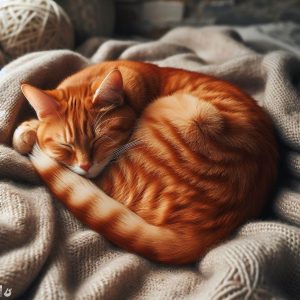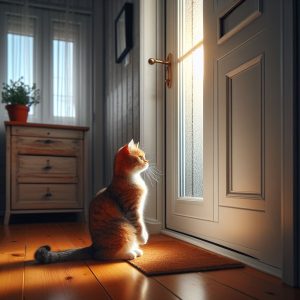Has your cat not pooped in a while but seems perfectly normal otherwise? As a feline owner, you know regular bowel movements are important for your cat’s health. So what should you do when your cat isn’t pooping regularly?
Constipation in cats can arise due to several reasons like dehydration, lack of exercise, fur balls, gastrointestinal issues, or even cancer. The condition may resolve on its own, but can also develop into something more serious without proper care. So it’s vital to understand the signs, causes and treatments for constipation in cats.
This extensive guide will cover all you need to know about cat constipation. You’ll learn:
- Common signs your cat is constipated
- Underlying causes of constipation in cats
- Home remedies and treatment options
- When to visit the vet for constipation
- How to prevent constipation in cats
Armed with this information, you can take prompt action if your cat stops pooping and ensure your feline friend stays happy and regular.
Signs Your Cat Is Constipated
Cats are masters at hiding pain and discomfort. So how do you know if your cat is constipated? Here are some common signs:
Infrequent Bowel Movements
Healthy cats pass stools once or twice daily. If your cat hasn’t pooped in 2-3 days, it likely indicates constipation. The longer your cat goes without pooping, the more severe the constipation.
Small, Hard Stools
Normal cat poop is firm, moist and log-shaped. Constipated cats pass small, dry and hard stools. You may see pebble-like poop stuck in the litter box.
Straining to Poop
Constipated cats spend long periods straining in the litter box without passing stools. They assume the pooping position, cry out and nothing comes out.
Decreased Appetite
The discomfort and pain makes constipated cats unwilling to eat. Nausea and vomiting may also reduce appetite.
Lethargy
Your active cat suddenly becomes lazy and sleeps more due to illness and dehydration from constipation.
Vomiting
In some cases, constipation causes nausea and vomiting in cats. Vomit may contain food, bile or hairballs.
Blood in Stool
Severe constipation can cause anal tears, bleeding and blood in stool. This is an emergency requiring immediate vet care.
Scooting Bottom on Floor
The pressure of blocked stools makes cats drag their bottoms along the floor for relief.
Excessive Licking Around Anus
Constipated cats lick their hind region persistently trying to stimulate bowel movements.
Distended Abdomen
In prolonged constipation, dry poop accumulates in the colon causing an swollen, hard belly.
If your cat is straining fruitlessly in litter box, has small, dry stools or hasn’t pooped in 2 days, suspect constipation. The earlier treatment begins, the better the outcome. Don’t wait for additional symptoms to appear.
Why Your Cat Stops Pooping: Common Causes
Constipation has many possible causes in cats. Here are some of the most common reasons:
1. Dehydration
Cats have low thirst drive and can easily get dehydrated, especially if fed only dry food. Dehydration causes the colon to soak up water from stool, resulting in small, hard poop that’s painful to pass.
Tip: Switch to wet food or add water to dry food to increase fluid intake. Also keep fresh water easily available.
2. Diet and Hairballs
Diets low in fiber often cause constipation in cats. Excess fur groomed while self-cleaning combines with low-fiber poop to create solid hairballs that block the intestines.
Tip: Slowly increase fiber with high-fiber cat food or supplements like pumpkin purée. Regular hairball remedy can help pass fur balls.
3. Lack of Exercise
Like humans, inactive cats are more prone to constipation than active cats. Physical activity stimulates the colon and digestion.
Tip: Make your cat more active with interactive cat toys for exercise and playtime.
4. Obesity
Excess weight puts pressure on the colon and can directly cause constipation in cats. Obese cats need larger stool volume for elimination.
Tip: Consult your vet and put your cat on a supervised weight loss diet.
5. Foreign Body Obstruction
Cats may swallow non-food items like plastic, rubber bands, hair ties or string. These can get stuck in the colon and cause a deadly blockage.
Tip: Keep all string, ribbons, toys with parts etc. away from cats. Visit the emergency vet if you suspect obstruction.
6. Tumors and Cancer
Colorectal tumors, inflammatory bowel disease and other cancers can narrow the colon passage leading to constipation.
Tip: Have your vet rule out cancer and IBD if constipation persists despite treatment.
7. Side Effects of Medication
Some cat medications like pain meds, anti-depressants, chemotherapy drugs etc. list constipation as a potential side effect.
Tip: If your cat developed constipation after starting new meds, tell your vet. Adjustments in dosage or laxatives may help.
8. Nerve Damage
Disorders like diabetes, trauma or intervertebral disc disease can damage the nerves that stimulate colon contractions and cause chronic constipation.
Tip: Diagnostic tests like CT scan or MRI can confirm if nerve issues are causing chronic constipation.
9. Megacolon
Megacolon means enlarged, dilated colon that can no longer contract and pass stool. It has a genetic predisposition in cats.
Tip: Megacolon may require lifelong laxatives, stool softeners and even surgery. Follow vet instructions.
10. Old Age
Like humans, cats can become constipated more easily as they age due to weaker intestinal muscles, less physical activity and other factors.
Tip: Monitor your senior cat’s litter habits daily. Address constipation promptly. Follow vet advice on diet, hydration and laxatives.
Now that you know why cats stop pooping suddenly, let’s go over some home constipation treatments you can try before your vet visit.
Home Remedies and Treatments For Cat Constipation
For mild constipation, there are some home remedies worth trying before veterinary medication or treatment:
1. Encourage More Water Intake
Dehydration is the #1 cause of constipation in cats. The simple solution is to get more fluids into your constipated cat. Try:
- Switching to wet food or adding water to dry food
- Using a cat water fountain to encourage drinking
- Adding tuna juice, clam broth or low-sodium chicken broth to food
- Syringe feeding water if your cat is unwilling to drink
2. Add Fiber to Diet
Fiber bulks up stool, allowing it to move through the colon more easily. Vets recommend slowly increasing fiber with:
- High-fiber prescription cat foods
- Unflavored psyllium husk powder (start with 1/8 teaspoon twice daily)
- Canned pure pumpkin (not pie filling)
- Probiotic cat supplements
Too much fiber at once can worsen constipation, so increase slowly while monitoring stool.
3. Exercise and Playtime
Get your cat moving to stimulate the colon. Initiate interactive play sessions with toys like cat dancers, feather wands and laser pointers. Also use treat balls and puzzles that make cats work for food mentally and physically.
4. Belly Massages
Gently rub your cat’s tummy to relax the colon and help stimulate bowel movements. Always stay low on the belly, not near the ribs.Stroke downwards from chest to hind legs.
5. Warm Compresses
Place a warm compress or heated bean bag on your cat’s tummy for 5-10 minutes, 2-3 times a day. The warmth will relax tight anal and colon muscles.
6. Laxatives and Stool Softeners
Over-the-counter laxatives like lactulose and stool softeners like docusate can provide relief for mild constipation. Always consult your vet on correct dosage and schedule for your cat.
7. Petroleum Jelly
Rub a pea-sized amount of petroleum jelly on your cat’s paw. As your cat licks it off, the oil lubricates the digestive tract, stimulating bowel movements.
8. Glycerin Suppositories
These pediatric glycerin suppositories for infants can help stimulate poop in constipated cats too. But only use after vet consultation on dosage and method.
If home treatments don’t resolve constipation in 1-2 days, don’t delay. Make an appointment with your vet for an exam and medical treatment.
When To Visit The Vet For Cat Constipation
Most simple cases of constipation resolve with home treatment. But some cases require veterinary medical help. See your vet if:
- Your cat hasn’t pooped in over 48 hours
- Home remedies haven’t worked after 24-48 hours
- Your cat is repeatedly constipated
- Constipation is accompanied by vomiting, loss of appetite or lethargy
- Your cat shows signs of straining or pain when trying to poop
- You see blood in cat poop or leaking from rectum
- Your cat’s abdomen feels bloated and hard
- Your cat seems excessively bothered by constipation
Prolonged constipation can harm the colon and nerves controlling defecation. So timely vet treatment is key.
Diagnostic Tests
To determine the underlying cause, your vet may recommend:
- Physical exam – palpating the colon for blockages or fecal masses
- Blood and urine tests – checking for issues like dehydration, kidney disease, diabetes or cancer
- Fecal analysis – inspecting poop composition and looking for parasites
- X-rays or ultrasound – revealing stones, tumors or foreign objects
- Endoscopy – inserting a camera to inspect the colon’s interior
Medical Treatment
Based on exam findings, your vet may prescribe:
- IV fluids – correcting dehydration is the first step
- Laxatives – to soften stool and promote bowel movements
- Lactulose, bisacodyl, liquid paraffin etc.
- Enemas – flushing out the lower colon using saline solution
- Manual disimpaction – the vet removes stuck feces under anesthesia
- Antibiotics – if bacteria imbalance or infection caused the constipation
- Pain medication – to keep your cat comfortable during treatment
- Prescription food – special diets for hairballs, weight loss or fiber
- Surgery – for removing tumors obstructing the colon, or medically unresponsive megacolon
Follow vet instructions carefully on medication dosage, timing and diet. Monitor your cat for improvement in appetite, energy levels and litter box habits. Call your vet if the constipation doesn’t resolve within 2-3 days of medical treatment. Recurring or chronic constipation may require long-term laxative use or further diagnostic tests.
Preventing Constipation Recurrence In Cats
Once your cat recovers from a bout of constipation, take these precautions to prevent recurrence:
- Keep your cat well-hydrated year round
- Feed a fiber-rich diet with wet food and limited table scraps
- Groom frequently to minimize hair ingestion and hairballs
- Maintain an ideal body weight to avoid obesity
- Provide daily interactive playtime for exercise
- Add cat-safe probiotics that support digestion
- Use catnip as it soothes the stomach and speeds “gut transit time”
- Ask your vet about prophylactic laxatives if your cat has recurrent constipation
- Have your vet rule out underlying conditions like IBD, diabetes or megacolon
- Monitor litter box habits daily for early detection
- Learn your cat’s individual pooping schedule and note any deviations
With vigilance and prompt veterinary care, you can get your constipated cat’s bowel movements back on track and avoid complications. Stay alert to signs of straining, small stools, vomiting etc. The faster constipation is addressed, the better!
Key Takeaways: Cats Not Pooping But Acting Normal
- Healthy cats pass stool once or twice daily – lack of pooping isn’t normal
- Constipation is common in cats and has many causes like dehydration, low fiber diet, lack of exercise etc.
- Signs of constipation include straining, small dry stools, lethargy, appetite loss and vomiting
- Try home remedies like more water, fiber, exercise, tummy massage and laxatives
- See your vet if home treatment doesn’t work within 1-2 days
- Serious cases may require IV fluids, manual disimpaction or prescription medication
- Prevent recurrence with proper hydration, diet, exercise and prophylactic laxatives
- Monitor litter box habits daily to catch constipation early
Don’t ignore changes in your cat’s bathroom routine even if other behaviors seem fine. Take constipation seriously and take action quickly. With vigilant care and prompt treatment, you can keep your cat’s bowels moving and avoid dangerous complications!



